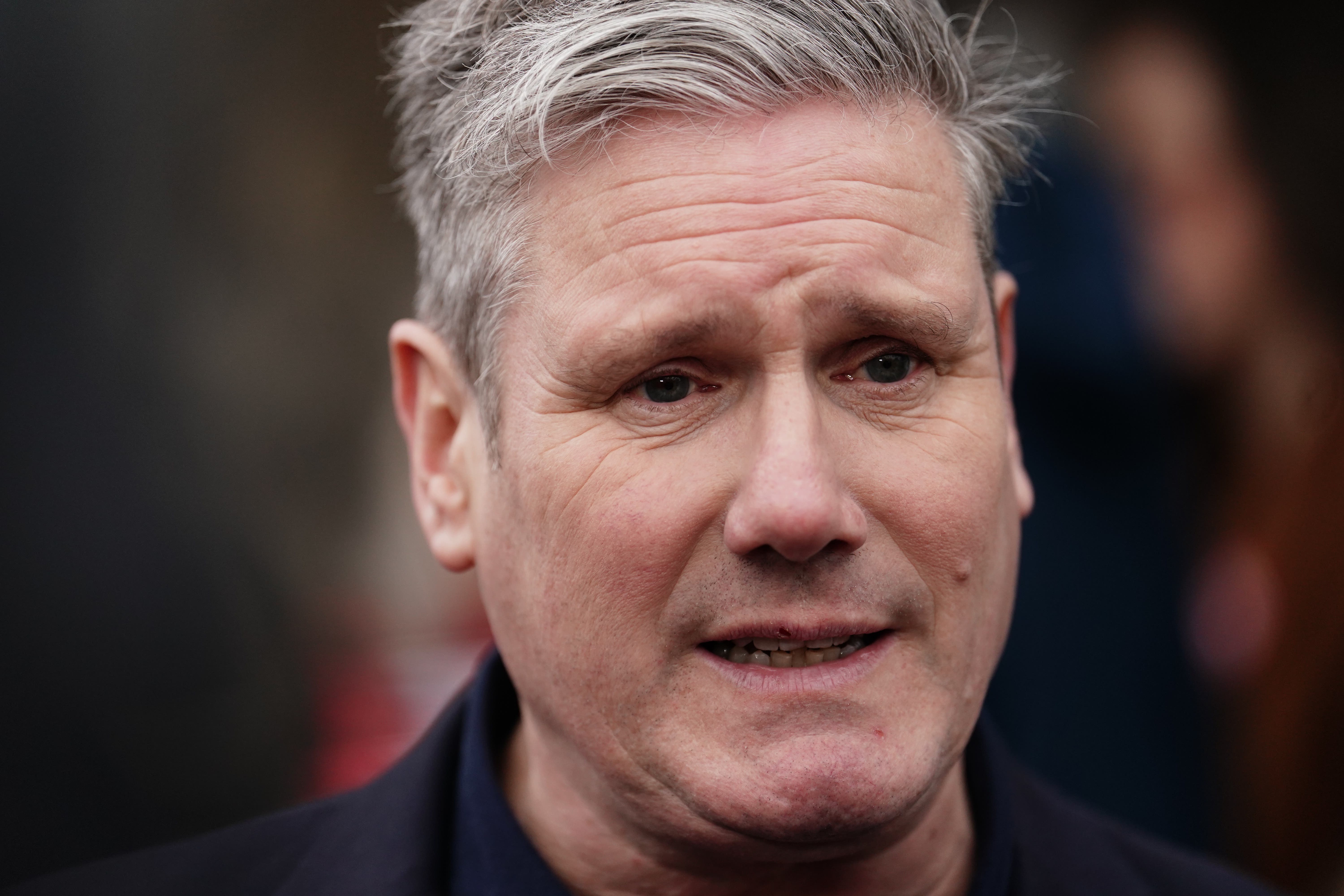Swing voters care most about the cost of living – and don’t trust Starmer to save them
New polling suggests that ‘persuadable’ voters have their doubts about Labour making them better off, John Rentoul writes


I have seen some exclusive polling of swing voters from a campaign called the New Britain Project. It suggests that “persuadable” voters don’t think Labour will do better on the cost of living than the Tories, and that they don’t know what Labour stands for, thinking it “just opposes” for the sake of it.
The poll is interesting because it focuses on people who say they intend to vote at the next election, but who haven’t decided how they will vote. It asked them: “What would be your main hesitations if any about voting Labour?” The most common reason, selected by 47 per cent of the group, was: “I’m worried they won’t be able to do a better job than the Tories at sorting out the cost of living crisis.”
What is important about this is that more swing voters are worried about the “cost of living” in general than are worried about specific issues such as raising taxes, which was named by 30 per cent. It is also significant that relatively few of them are worried about Keir Starmer. Only 25 per cent said: “I don’t like Keir Starmer.” They tend to think he has changed the party. Only 16 per cent said: “I don’t think they’ve changed since Jeremy Corbyn.” Few said they are worried that the party won’t stand up to Russia (22 per cent) or that it will be soft on crime (21 per cent), although the proportion who say, “I’m worried they don’t know what a woman is” (16 per cent), might be higher than expected.
If this poll is right, it is the cost of living above all that holds the key to persuading the “persuadables”. The other top hesitations about voting Labour suggest that these voters have few positive reasons for backing Starmer. The second most common reason chosen was, “I’m not sure what they stand for” (41 per cent) and the third, “I’m worried they just oppose and don’t stand for anything positive” (39 per cent). These figures are a lot higher than for the general population.
That is why Rishi Sunak has made halving inflation the first of his five pledges. Presumably, the Conservative Party’s polling is telling him something similar: that if he can raise living standards before the next election, swing voters will be disinclined to believe that Labour would make them better off.
Crudely, if pay is rising faster than prices for long enough before the election, the Tories have their best chance of closing the gap on Labour. That is why it matters that the Office for Budget Responsibility a few weeks ago forecast that real disposable income – that is, income adjusted for inflation – will rise next year. Not by a huge amount, 1.7 per cent, although that is about as good as it has got since the financial crash – except in 2015, which was an exceptional year when it rose 6 per cent. (It was also the year in which the Tories narrowly won an election, but they also stayed in power after elections held when real incomes were rising more slowly.)
And that is why it matters that core inflation has remained higher than expected in the latest figures: the higher it remains, the more it will eat into incomes next year.
It is true, of course, that the New Britain Project poll has set Labour a tough mission, identifying those not intending to vote Labour or Conservative right now as the target group. In fact, Labour does not need to win over more voters in order to win the next election. With an average 15-point lead in the opinion polls, all the party needs to do is to hold on to those people currently intending to vote Labour. But the views of “persuadable” voters are similar to those of weak Labour voters, and so this poll is a good guide to Starmer’s task.
Anna McShane, the director of the New Britain Project, told me: “To understand the challenge facing Keir Starmer you need to understand the profound public disillusionment that has taken root. The vast majority of people feel nothing in Britain works any more and they just don’t think any politician can fix it.”
The project was set up to try to engage with people who would never dream of joining a political party, so that “Britain can believe in itself again”. And McShane thinks that Starmer is starting to take the right kind of steps: “Recent policy announcements on housing and the NHS indicate a readiness to take some risks and start developing a vision he can take to the country in 18 months’ time.”
But this poll suggests that the key battleground is living standards, which Starmer and Rachel Reeves, the shadow chancellor, can influence only at the margins by demonstrating competence and fiscal responsibility. What really matters is what happens to the OBR’s forecast for real household disposable income in 2024.
More in Common carried out a nationally representative online poll of 2,017 adults in Great Britain for The New Britain Project, 12-15 May. “Persuadable” voters were defined by excluding those who: voted for Labour in 2019; intend to vote Labour or Conservative right now; say they will definitely not vote; say they will never vote Labour.



Join our commenting forum
Join thought-provoking conversations, follow other Independent readers and see their replies
Comments